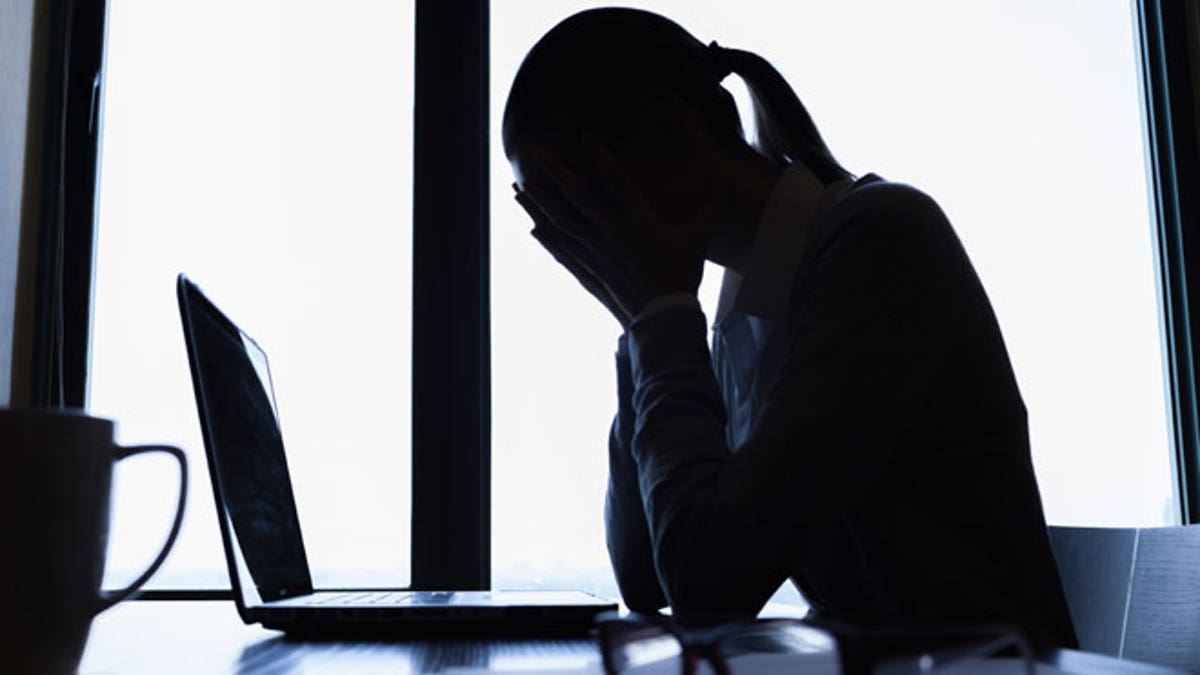
When you type "testosterone" into Google images, just about every picture that pops up is of men—beefed-up men at the gym, men clenching their fists with angry faces, and muscle-laden men sitting in bed with two (or more) scantily clad women. And it's no surprise that these images show up. Testosterone is widely known as the "male" hormone that gives men their beefy bodies, anger-management problems, and strong sex drives.
But calling testosterone the male hormone does it a bit of a disservice, because women have it, too. Although women's bodies don't produce nearly as much testosterone as men's, even the tiny amount you make each day keeps your emotions in check and your body wanting sex. (Is menopause messing with your low sex drive? Ease your symptoms with The Hormone Reset Diet.)
When your body doesn't make its daily dose, as many women's bodies don't, well, it's not good. Here, 5 signs you might have low testosterone:
1. You're no longer interested in sex.
Despite what Google suggests, having normal testosterone levels doesn't mean you'll suddenly find yourself having threesomes. It means you'll desire sex regularly and enjoy it when you do. When those levels dip below normal, you may find yourself wanting sex less and less, even though you still desire your partner. When you do have sex, it likely won't be as enjoyable as it used to be, since research shows that low testosterone can affect a woman's ability to have an orgasm.
There is currently no sex-drive-boosting drug for women, though that's set to change shortly. Meanwhile, researchers found testosterone supplements can help some women who are deficient, though they're not FDA approved and can cause unwanted side effects like hair growth and possibly even heart trouble (though this is controversial). Talk to your doctor if your sex drive suddenly goes MIA.
MORE: 9 Things Your Vagina Is Trying To Tell You
2. You can't seem to lose weight.
Struggling to lose weight (especially belly fat) could be about more than how much you exercise or if you enjoy an occasional treat. Testosterone helps regulate the placement of muscle and fat on your body, and a lack of the hormone shifts the balance in favor of fat, especially around your middle.
But not only does low testosterone keep fat on your body, it also affects your ability to build muscle and can even make you lose the muscle you already have. When researchers measured testosterone levels and muscle density in 430 Japanese women, ages 40 to 79, researchers found low testosterone was associated with loss of muscle in their arms and legs over time.
MORE: 9 Proven Ways To Lose Stubborn Belly Fat
3. You're tired all the time.
It's absolutely normal to experience dips in energy at points in the day. But being tired all the time or tiring easily when you exercise could indicate something worse than needing more caffeine. In a study of men and women over the age of 65, scientists found that those with low testosterone easily felt exhausted, weren't able to walk as fast as their peers with normal testosterone levels, and weren't as active. Some doctors prescribe not-yet-approved testosterone replacement for women who report having no energy. While the same risks apply as for sex drive, testosterone cream has been shown to help.
MORE: The Unbelievable Reason You're Short On Vitamin D
4. You're depressed and/or anxious.
While low testosterone likely isn't the sole cause of anyone's depression, research shows it could also have a hand in the disease. In a study of women, ages 25 to 46, those with low testosterone were more likely to be depressed. Other research shows that women with prolonged testosterone deficiency are often both more anxious and more depressed than women with normal testosterone levels.
5. You have a weak grip.
Osteoporosis, which causes weak bones, is often considered a women's disease because low estrogen is a key factor in lost bone density. But research shows that low levels of testosterone can leach strength from your skeleton as well, according to Harvard Health. Both men and women who have low levels of testosterone are considered "frail" partially because they can no longer hold a firm handshake. For most women, lack of estrogen will be the main reason osteoporosis sets in, especially following menopause, when the hormone drops dramatically. But replacing estrogen may not be enough if testosterone is also out of balance.
